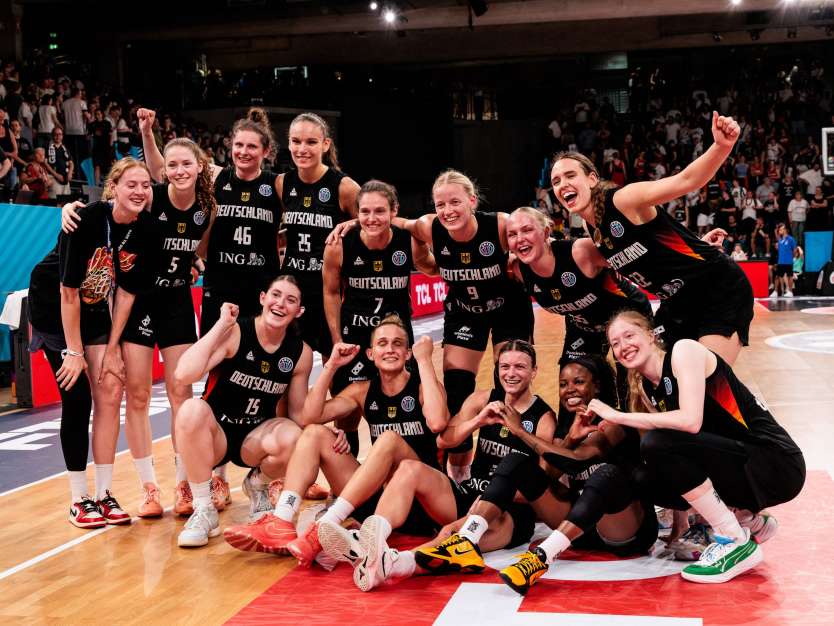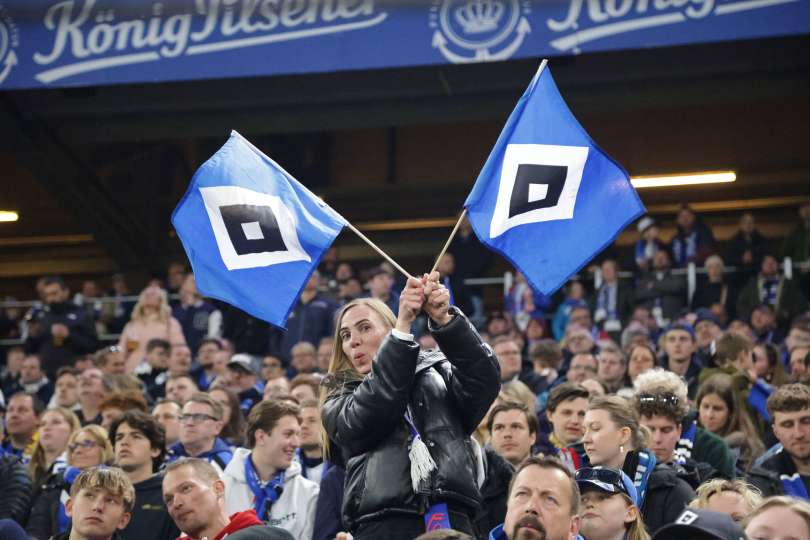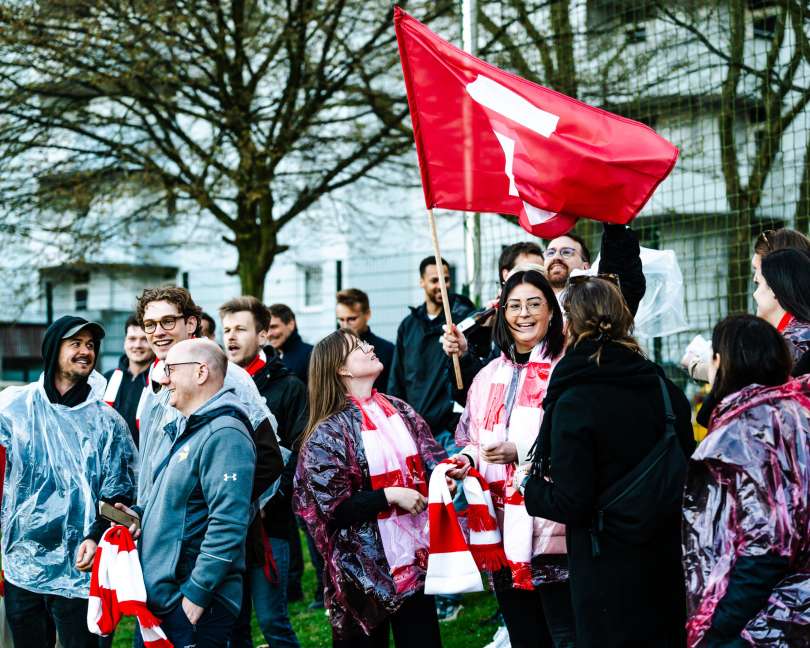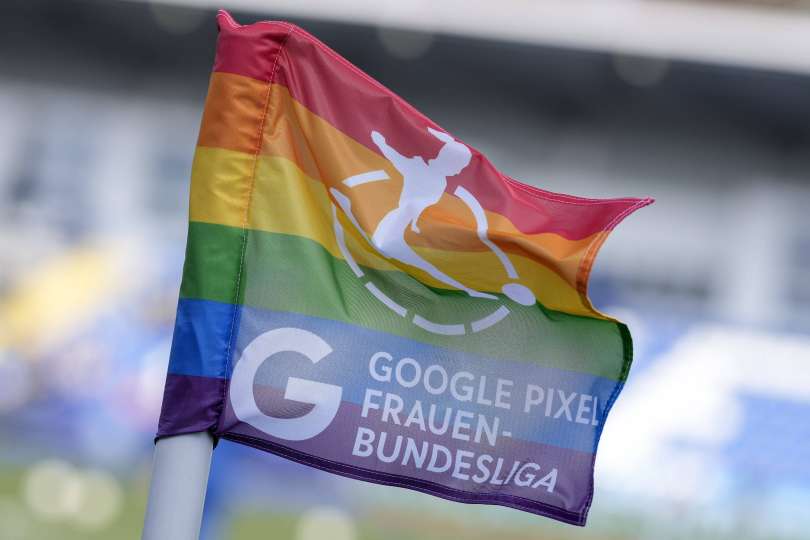
Employer Branding Through The Power Of Sports Marketing
Published on
by Frederik Festner
How Companies Win Talent Through Emotion, Experience, and Values
In a working world increasingly shaped by flexibility, purpose, and competition for talent, employer branding has become a strategic priority. But how can companies position themselves as attractive employers, credibly, emotionally, and sustainably? The answer often lies where people cheer, connect, and feel inspired: in sports.
In this Insight:

The Emotional Power of Sports as a Branding Booster
Sports are more than just entertainment - they are a collective experience that unites people and evokes strong emotions. This emotional energy makes sports marketing a particularly powerful tool for employer branding. When a company becomes visible in the context of a popular team or sport, it benefits from the positive perception and strong identification of fans. The brand is not just seen - it’s felt. And that builds trust. Especially in times when authenticity and value alignment are key factors in choosing an employer, the emotional power of sports can be decisive.
From Logos to Experiences: Rethinking Employer Branding
Traditional sponsorship - like placing a logo on a jersey - is no longer enough to attract talent. Successful employer branding in sports means creating experiences that touch and involve people. Companies invite candidates to exclusive recruiting events at stadiums, organize team-building challenges with a sports theme, or offer employees behind-the-scenes access to major sporting events. These formats make the employer brand not just visible but tangible. They leave lasting impressions and strengthen emotional bonds - both with potential new hires and existing employees.


Showcasing Values: Sustainability and Diversity in Focus
Younger generations expect more from employers than just a good salary. They seek purpose, integrity, and social responsibility. Companies that engage in sustainable and inclusive partnerships in sports send strong signals. This could include supporting green sports initiatives, promoting para-sports, or partnering with LGBTQ+-friendly clubs. These actions show that a company thinks beyond profit and acts with social awareness. That builds credibility - and attracts the kind of talent that stays for the long term.
Examples: Choosing Sports Strategically
Tech & IT
Esports and Formula E represent innovation and digital affinity
Environmental Brands
Trail running and climbing reflect a connection to nature and sustainability
Financial Services
Golf and tennis convey exclusivity, professionalism, and networking culture
FMCG
Football and basketball offer broad reach and cultural relevance

Internal Impact: Employees as Brand Ambassadors
Employer branding starts from within - with the people already working at the company. Employees who are proud of their employer naturally share that enthusiasm with others and become authentic brand ambassadors. Sports-related initiatives can strengthen this pride: whether through company participation in charity runs, exclusive team merchandise, or benefits like gym subsidies and stadium visits. These efforts promote not only health but also a sense of community. When employees identify with the brand, a culture emerges that attracts new talent organically.

Measuring What Matters: KPIs for Sports-Based Employer Branding
How can the success of employer branding in sports be measured? This is where data-driven strategies come into play. Companies track changes in application numbers and quality after sports-related campaigns. Employee satisfaction - measured, for example, via the Employee Net Promoter Score (eNPS) - also provides valuable insights. Social media reach, engagement rates, and employee retention are further indicators. Especially meaningful are brand perception surveys within target groups. Regularly analyzing these KPIs helps refine strategies and allocate budgets effectively.
Conclusion: Sports as a Stage for Strong Employer Brands
Sports marketing is not just a trend—it’s a strategic tool for modern employer branding. Those who manage to combine emotion, values, and memorable experiences don’t just gain visibility—they win the hearts of tomorrow’s top talent.
If you are interested in a career at SPORTFIVE and help brands to grow through sport sponsorship and marketing, simply check out the careers page. The SPORTFIVE team will be happy to discuss opportunities that match your experience and vision.
SPORTFIVE works for a diverse range of brands, from global consumer brands to niche players looking to enter the sports market. The clients come from a variety of industries, including automotive, consumer goods, tech, and more. No matter your size or industry, SPORTFIVE can tailor a sponsorship solution to meet your specific needs.
SPORTFIVE implements a creative and results-oriented approach to sponsorship activation, focusing on delivering meaningful experiences that connect brands with their audience. By leveraging digital platforms, live events, and fan engagement tactics, the agency ensures that sponsorships go beyond visibility to deliver true value and engagement.
Image objectives
Brands that are active in sports sponsorship are more likeable, more relevant and better trusted among fans. We call this the “emotional uplift”. Not only were we able to demonstrate this effect in a qualitative market research study, but we have also quantified it.
Awareness objectives
Whether among top target groups or the population at large, boosting brand awareness is a traditional strength of sponsorship. In an age of fragmented media consumption, it is becoming an increasingly frequent unique selling point in sport.
B2C customer retention
Sports sponsorship shortens distances and turns customers into lasting brand fans through promotions like money-can’t-buy experiences, loyalty incentives, exclusive benefits, prize draws, bonus programmes or sensation marketing.
Maintaining B2B contact
Professional infrastructure, special occasions and memorable experiences: the fervour surrounding sport makes for the perfect hosting platform for forging new business relationships and strengthening existing ones.
Tapping new target groups
Sponsorship can overcome dialogue obstacles and enables organisations to reach their target groups before and even after purchases are made, provided the platform has maximum target group overlap.
6. Sales and revenue objectives
Sponsorship affects revenue, be it via direct sales, branding at the point of sale, the expansion of sales networks, or one of the many new activation formats for sales promotion in sport.
Corporate social responsibility
Nutrition, health, youth empowerment and sustainability (to name a few): professional sport provides companies with a platform that impacts a range of economic sectors and can lead to authentic ways of implementing CSR measures.
Employer branding
Sponsorship is becoming an increasingly important tool in the so-called war for talent. It is used for recruiting new employees or retaining existing employees who have been with the company for a long time.
Enhanced Fan Experience: Improve the overall fan experience by offering exclusive content, access, or promotions through the partnership.
Innovation and Technology: Showcase technological advancements or innovations through sports partnerships, positioning the brand as forward-thinking and cutting-edge.
Sponsorship is the financial support for a sporting event, organisation or athlete by an outside body, for the mutual benefit of both parties. At the professional level this tends to be by companies, to raise the profile of their brand by associating it with the athlete.
The company aims to generate brand awareness and customer recognition, whilst the event, organisation or athlete receives a boost in funding.
A popular example is a brand logo printed on a team shirt. Visibility is guaranteed, even more so in the modern world with social media and online highlights.
In the land of media and marketing rights today, there is no cookie-cut solution for brands, and a simple logo placement will not provide the sufficient return on investment (ROI) for sponsorship, nor does it give their target audience the “why?” - the reason to spend their money and engage with the product.
Companies investing in sports sponsorship need to look at the bigger picture to engage with fans and not rely on just one piece of inventory.
Comprehensive marketing is a strategy which covers all aspects of the marketing sphere, from the steps before initial concept ideation, right through to delivery and assessment.
A comprehensive marketing plan is a roadmap that helps you to determine your target audience, understand their needs, and create a strategy to fulfil those needs.
The first step in creating a comprehensive marketing plan is to define your business objectives. What are you trying to achieve? This could be to increase sales, improve brand awareness, or to launch a new product.
The next step is to identify your target audience. Who are your customers? What are their needs? What motivates them to engage or make a purchase? Understanding your target audience is crucial to developing a marketing strategy that will resonate with them.
To stand out in a crowded marketplace, you need to differentiate yourself from your competitors. Identify and analyse your potential competitors to understand their strengths and weaknesses. Try and understand their marketing strategies, pricing, and product offerings.
Find your USP. Your Unique Selling Proposition/Point (USP) is what sets your business apart from your competitors. It's the reason why customers should choose you over the competition. Develop a clear and compelling USP that speaks to your target audience.
Now you can develop your marketing strategy. Your marketing strategy should include your product positioning, pricing strategy, distribution channels, and promotional tactics.
To execute your marketing plan effectively, you need to set a budget. Determine how much you can afford to spend on marketing and allocate your budget to the most effective tactics.
To measure the success of your marketing plan, you need to set your metrics. What are you trying to achieve? Is it to increase sales, generate leads, or improve brand awareness? Set specific goals and track your progress against them.
Your marketing plan is not set in stone. It's essential to review and refine your plan regularly. Monitor your metrics, evaluate your results, and make adjustments as necessary.